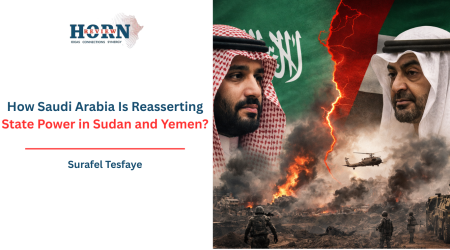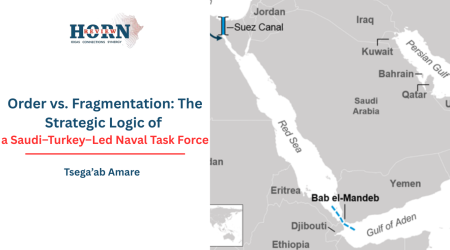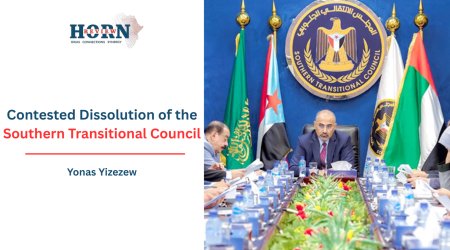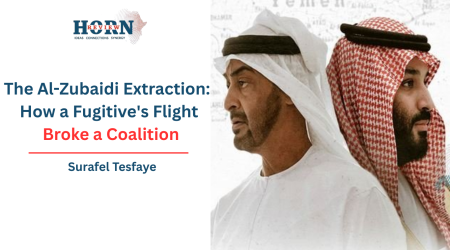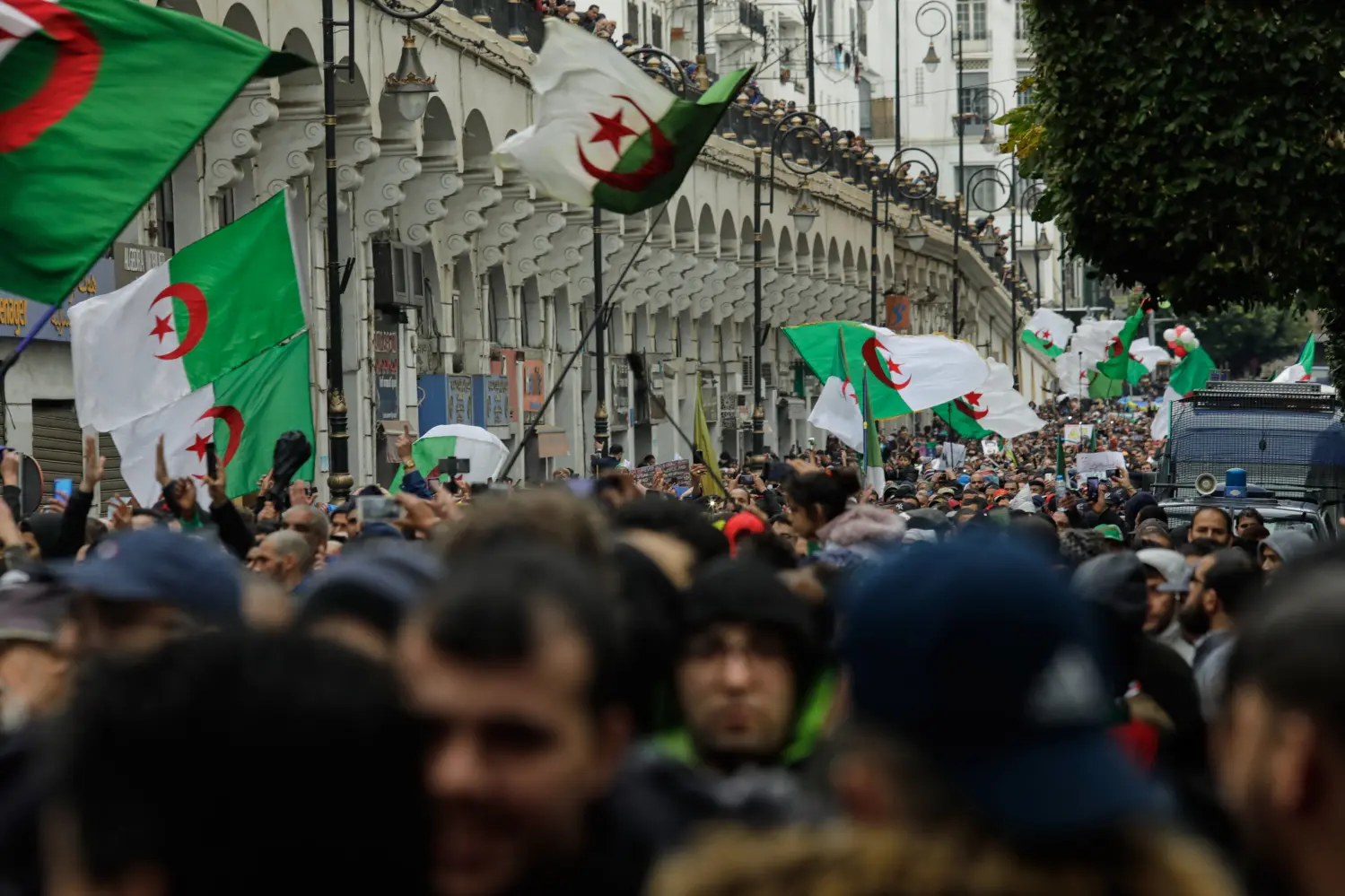
19
May
Saharan Stalemate: Self-Determination, Sovereignty, and Regional Rivalries
For too long, colonial legacy has shaped Africa in profound and enduring ways. Contested border disputes, economic exclusions, and struggles for self-determination have been the determining aspects of the geopolitical landscape of Africa. Nowhere is that legacy clearer than in Western Sahara, whose protracted conflict offers a stark insight into the broader challenges of sovereignty, identity, and regional stability across the continent.
The roots of the Western Sahara conflict lie in Spain’s colonial withdrawal in 1975. The departure created a power vacuum that was quickly contested by Morocco and Mauritania. Yet, the competition for control ignored the needs and aspirations of the Sahrawi people, who then, through the Polisario Front, sought self-determination. Initially established to resist Spanish rule, the Polisario Front later shifted focus to oppose Moroccan and Mauritanian claims over the region. Algeria stood out as the early and primary supporter of the Polisario, in what can be determined as a strategic bid aimed at exerting regional influence over Morocco and continental solidarity against colonial remnants.
Morocco’s orchestrated “Green March” and subsequent annexation of Western Sahara deepened the conflict. In November 1975, Morocco mobilized over 350,000 unarmed civilians into Western Sahara. In an effective effort, Spain conceded administrative control amid a deepening territorial dispute. In response, the Polisario Front proclaimed the Sahrawi Arab Democratic Republic (SADR) on the 27th of February 1976, establishing a rival government that gained limited but mainly symbolic recognition, notably within the Organization of African Unity, and further complicated the region’s political landscape. The United Nations established the Mission for the Referendum in Western Sahara (MINURSO) in 1991 to implement and monitor a ceasefire. After the decades-long war, the UN-brokered ceasefire on September 6th, 1991. The deployment of MINURSO observers brought a fragile peace, but without a final resolution of sovereignty, the truce later on collapsed in November 2020 when hostilities resumed in the UN-patrolled buffer zone.
For Algeria, backing the Polisario Front has represented a matter of principle, one that is deeply rooted in its revolutionary heritage and an unwavering commitment to the right of all peoples to self-determination. However, this position is also partly based on its strategy to keep its neighboring and rival country, Morocco, regional influence in check. The decades-long support for the Sahrawi refugees, including sheltering and providing basic needs, is evidence of Algeria’s deep-rooted commitment. This intransigent position has been a major source of tension in the already complex relationship between the two nations, further exacerbated by closed borders and diplomatic ruptures. Domestically, the Algerian government has often leveraged the Western Sahara issue to foster national unity and divert attention from internal challenges, as the Sahrawi cause resonates with a significant portion of the Algerian populace.
For Morocco, the issue of asserting its sovereignty over Western Sahara is a matter of national interest, and this relates to the legitimacy of the monarchy. The Moroccan government refers to Western Sahara only as its “southern provinces”. Morocco’s diplomacy in seeking wider international recognition of this sovereignty has been the cornerstone of its foreign policy, accompanied by the opening of consulates in key Western Saharan cities. The 2020 recognition from the U.S., enshrined in treaties finalized with two last-minute moves, followed steps taken by Spain and France, in the same direction, handed Morocco a significant diplomatic victory. Economic interests, particularly the rich phosphate reserves and fishing grounds, further solidify Morocco’s determination to maintain control over the territory.
The conflict is one of the principal drivers of current Maghreb geopolitics. To a large extent, the long-standing competition between Algeria and Morocco, which has Western Sahara as a central cause of contention, has hindered regional integration and triggered an arms race. Foreign intervention combined with the actions of guerrilla militancy further aggravates the geopolitical quagmire. The shifting U.S. policy, the French recent backing of Morocco’s autonomy proposal, and the change of heart by the Spanish government all illustrate the complex interconnection of strategic and commercial interests in the area. The restrained attitude taken by other principal powers, such as Russia and China, mirrors the fragile balance that defines the persisting conflict. The conflict still stands unresolved and goes on hindering regional stability as well as regional economic development in the Maghreb.
Drawing comparative parallels with the Horn of Africa, the Ethiopian-Eritrean border war is the exemplary case for comparative analysis. Even after Eritrean independence in 1993, long-standing boundary disputes came to a head in the devastating war of 1998-2000, thus underlining the recurring problems linked to boundary conflicts. As with the Western Saharan case, outside powers had a significant input, and international mediators’ efforts faced serious challenges. The Algiers Agreement of 2000 effectively ended the immediate hostilities but, like in Western Sahara, failed to resolve the underlying concerns, as tensions have recently resumed. Comparison of these cases uncovers classic themes: the colonial legacy; rival territorial claims; roles for regional powers; periods of conflict punctuated by tenuous ceasefire agreements; and the limits inherent in international peacekeeping missions lacking clear political resolution. However, differences exist in the legal frameworks involved, the nature of external support, and the proposed solutions, reflecting the unique complexities of each situation. The comparative context thus underlines the imperative of resolution of the root factors driving the conflict, the insufficiency of peacekeeping efforts without accompanying political will, the potential for external actors both as facilitators and or barriers to settlement, and the importance of long-term international commitment.
The international reaction towards the war in Western Sahara has largely been spearheaded by the United Nations with the passing of numerous resolutions that affirm the Sahrawi people’s right of self-determination and call for a political solution. Yet, the mandate of MINURSO has remained restricted in its lack of a human rights monitoring system, which effectively reduced its overall performance. Initiatives of the UN Personal Envoy aimed at resuming negotiations face serious challenges due to the sides’ entrenched positions. The European Union’s official stand favors a United Nations-brokered solution; however, the changing views of such key members as France and Spain on Morocco’s autonomy initiative reflect their political interests. Although the African Union has traditionally supported the Sahrawi people’s right of self-determination, it has seen its role somewhat limited by Morocco’s return to the organization.
The human rights record in Western Sahara under the occupation of Morocco remains a cause of concern, with many reports of restrictions on freedom as well as repression of the Sahrawi independence movement and instances of torture and ill-treatment. In addition, the forcible displacement of tens of thousands of Sahrawis into refugee camps in Algeria underscores the human dimension of the prolonged conflict. The extraction of phosphate and fisheries in Western Sahara is a basic driver of the conflict, as the Polisario Front and international legal principles question the validity of the actions of Morocco. Developments of late that show the breakdown of the ceasefire and the growing international backing of Morocco’s autonomy proposal offer the potential for a new configuration of the conflict. The persisting disagreement over the right of self-determination remains a hindrance to the realization of a durable resolution.
In conclusion, the Western Sahara conflict is a deeply entrenched issue with far-reaching implications for regional stability and international law. Its complexity is enhanced by the ongoing conflict between Algeria and Morocco, the participation of world powers, and the unresolved self-determination issue for the Sahrawi people. The similarities with other long-running conflicts on the continent, including the Ethiopia-Eritrea dispute, underline the difficulties of attaining lasting peace in the face of clashing national interests and historical resentments. Moving forward, a resolution will require sustained diplomatic efforts, a commitment to international law, and a focus on the legitimate rights and aspirations of the Sahrawi people, potentially necessitating difficult compromises from all involved parties.
By Tsega’ab Amare,Researcher,Horn Review

